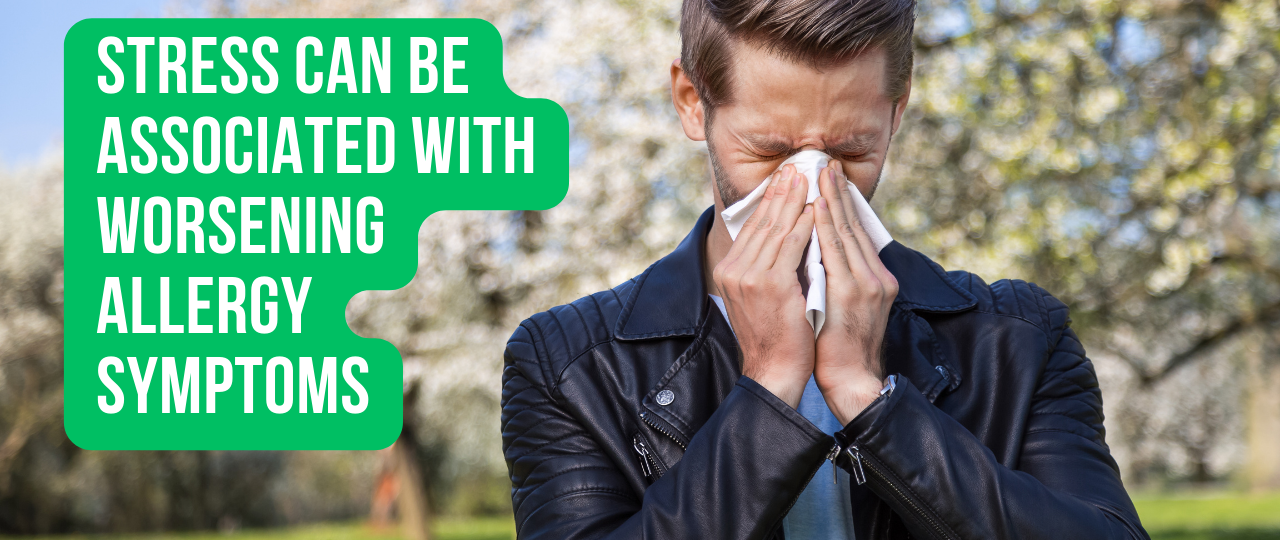Allergic Rhinitis Can Affect a Person’s Emotional Well-Being
Allergic rhinitis is the most common chronic disease, affecting up to 30% of adults and children. Common symptoms include nasal congestion, sneezing, itchy eyes and nose, post nasal drip and runny nose. The symptoms of nasal allergies are known to affect many aspects of a person’s life, resulting in decreased productivity at work, trouble thinking and concentrating, and overall decrease in emotional well being. While the symptoms of allergic rhinitis may result in increased stress in a person’s life, it isn’t known whether stress can actually worsen allergic rhinitis symptoms.
Allergies can be anytime of the year-remember this!
Can a Person’s Emotional Well-Being Affect Allergic Rhinitis?
A group of researchers at the Ohio State University sought to determine is a person’s stress is associated with worsening symptoms of allergic rhinitis. A group of 179 people who complained of a history of allergic rhinitis were recruited to participate. The subjects were followed for 12 weeks, and reported worsening symptoms of allergies during that time. If the subjects complained of two or more days of worsening allergies during the 12 weeks, they were considered to be part of the “allergy flare” group.
If the subjects had less than two episodes of worsening allergy symptoms during the 12 weeks, they were considered to be part of the “no allergy flare” group. Subjects were asked daily about stressful events in their lives. These events could have occurred during work or in their personal lives. Stressful events were scored based on severity, and a numerical value assigned, which were referred to as a “stress score”.
Thirty-nine percent of volunteers qualified to be in the “allergy flare” group, while 61% were determined to be in the “no allergy flare” group. There was no difference between the groups based on age, gender, or underlying medical problems such as elevated blood pressure or depression. There was also no difference in salivary cortisol samples (a hormone marker for stress in the body) or symptoms of depression. None of the subjects reported use of allergy medications over the entire study.
Stress Reduction May Prevent Allergy Symptoms
Interestingly, there was a significant association between a person’s “stress score” and the likelihood for allergy flares over the course of the study. While a person’s “stress score” did not necessarily predict that a person would experience worsening allergy symptoms on the day the stress occurred, there appeared to be an additive effect of worsening allergy symptoms after many days of stress. Therefore, emotional stress does appear to increase the chance of a person’s allergy symptoms worsening, particularly if that stress occurs regularly, is severe, and/or prolonged. This may be another good reason for stress relief in our lives – allergy symptoms could be lessened with a reduction of stress. Whether or not strategies aimed at stress relief, such as regular exercise, recreational activities, or meditation and breathing techniques would have a reduction of allergy symptoms as well is unknown, although this possibility seems likely.
Learn more about allergic rhinitis.
Source:
Patterson AM, Yildiz VO, Klatt MD, Malarkey WB. Perceived Stress Perdicts Allergy Flares. Ann Allergy Asthma Immunol. 2014;112:317-321.
DISCLAIMER: The information contained in this site is for educational purposes only, and should not be used as a substitute for personal care by a licensed physician. Please see your physician for diagnosis and treatment of any concerning symptoms or medical condition.




















